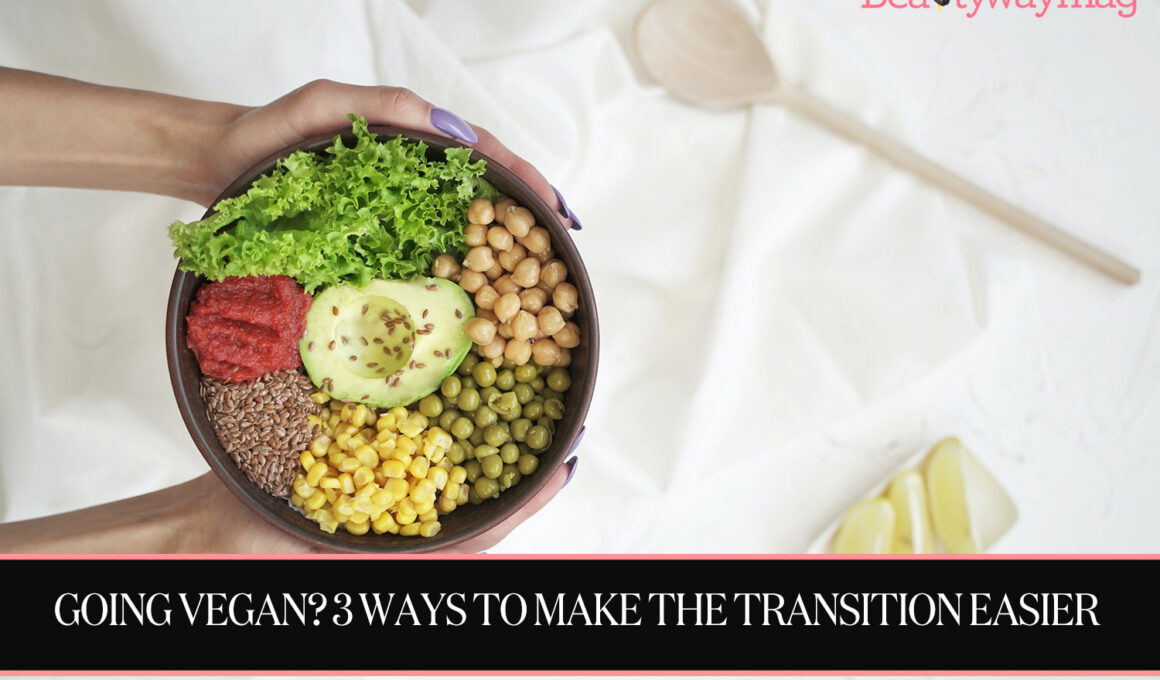Table of Contents Show
In the United States, veganism has been increasing. In fact, about 6% of consumers now identify as vegans. For many, the switch to veganism is based on the lifestyle’s many ethical, environmental, and health benefits.
After all, vegan diets decrease the demand for animal food products which helps disrupt abusive factory farming and related carbon emissions. Health-wise, a vegan diet has been found to have many advantages such as a lower risk for diabetes, heart disease, and cancer.
A systematic review of studies on the health impact of vegan diets done by Critical Reviews in Food Science and Nutrition even showed it can lower the risk of all-cause mortality.
However, despite the benefits of a vegan diet, transitioning to it can be intimidating.
A diet and lifestyle change demands commitment and adjustments which can easily discourage many. If you think a vegan diet could be right for you but are hesitant to try it, here are a few tips to help you get started:
Opt for a balanced meal plan
When it comes to dietary changes, planning your meals is important. You have to consider the nutrients you need and decide on the food options you want.
For new vegans, this process can be confusing since getting your nutritional and caloric needs without animal products is not as straightforward.
A personalized meal plan can help simplify this process, especially if you’re trying to manage your weight. WeightWatchers explains that balanced weight loss programs can help when starting a journey into healthier eating by taking your goals and preferences into account to create your vegan meal plan.
This means that meal plans can be customized to not only consider your veganism but also your taste. As a new vegan, having such an expert-tailored meal plan takes the guesswork out of the equation.
Complement your diet with supplements
In any healthy diet, it’s important that you are able to get all the nutrients you need especially if you are restricting certain products.
When you go vegan, while you will be able to get nutrients with a balanced diet, there are still some vitamins and minerals that you may miss out on. These include vitamin B12, calcium, vitamin D, iron, zinc, and omega-3 fatty acids, which are typically gotten from animal products.
As such, it’s recommended that you include fortified products or supplements in your new diet. Fortified foods examples include vitamin D-fortified soy milk, calcium-enriched juices, or vitamin-enriched cereals.
Needed nutrients can also be found in certain plant-based supplements such as the plant-based collagen in our feature ‘Is Vegan Collagen Good For You?’ By incorporating these into your vegan diet, your body can adapt faster and more efficiently to your new lifestyle.
Connect with other vegans
Social norms, expectations, and support can exert influence on lifestyle choices and promote certain eating behaviors. Studies have shown that encouragement, sharing, and connection can improve adherence to health behaviors. On the other hand, isolation and lack of support can lead to poor diet choices.
Aside from social support from family and friends regarding your new diet and lifestyle, you can also get help from other vegans.
Online communities such as vegan Facebook groups are great places to connect with other vegans. With other vegans, you can ask for help with making grocery lists, recipes, food substitution ideas, and restaurants.
Committing to any lifestyle change can be difficult, and sometimes you can get tired or discouraged. Thankfully, there are ways to make this switch easier. Whether your reason is a concern for animals, care for the environment, consideration of your own health, or a combination of these reasons, remember that you are taking steps to be better so your efforts are well worth it.
For more tips, guides, and articles on all things beauty, fitness, and health, check out our blog at BeautyWayMag.





